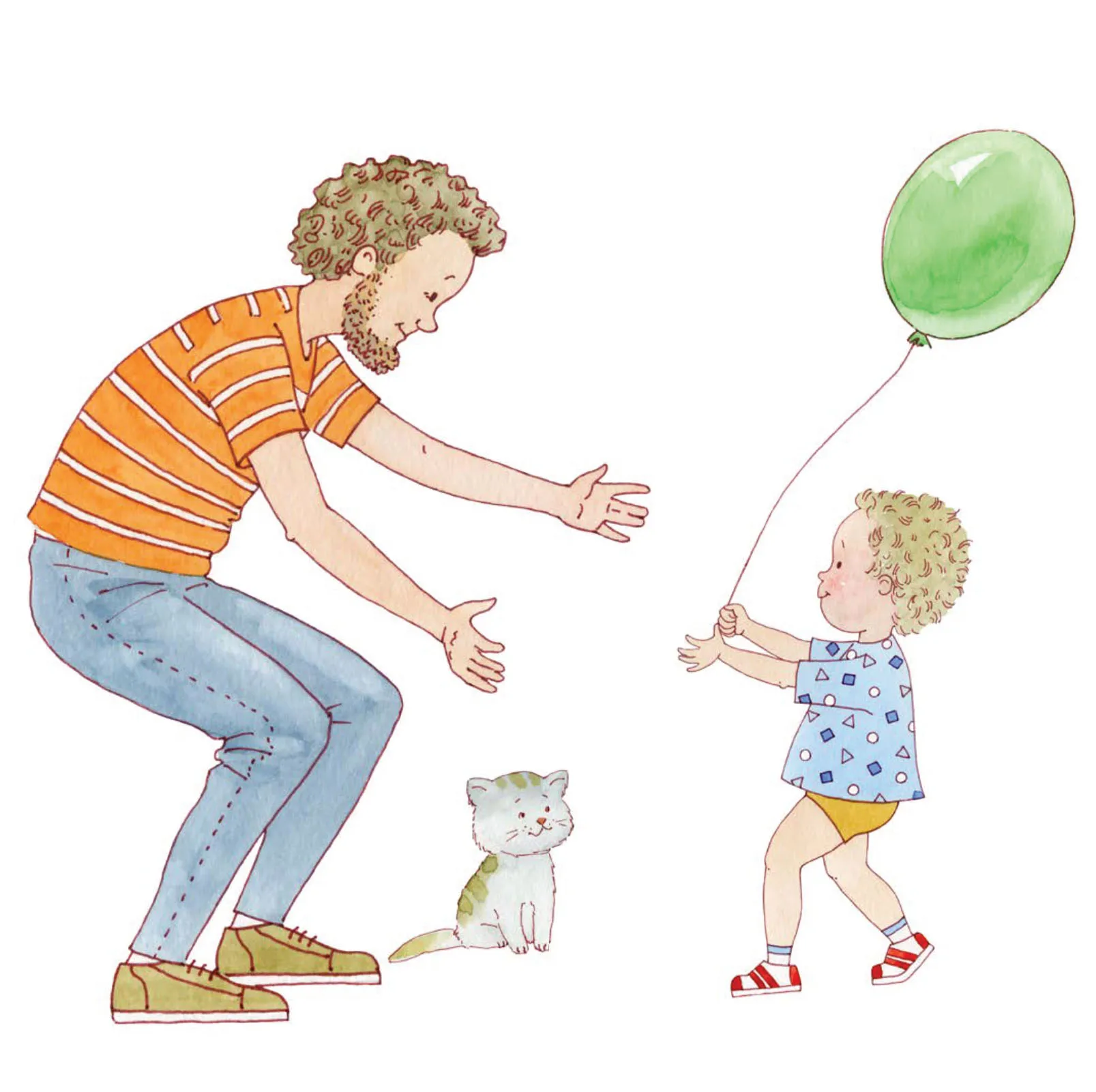The Secret to Talking with Kids
2020-04-15ByFanDeng
By Fan Deng
Parents may learn how to help their kids attack one problem by firstly asking them how to get it done.
For example,parents can ask such questions as “How do you think you can get along with your friends?” and “How do you think you all can have fun without a fight?” What is essential in emotional involvement is to put the kids on the right track of dealing with things.
A good job from the kids should be appreciated promptly by encouraging them,“You’ve just done a good job,which is all about…” This is what I mean by emotional involvement.
I once tried to tell the meaning of the word “patience” to my twoyear-old son,Dudu.One night,when he cried for milk on the bed,my wife rushed to prepare a glass for him.I said to myself that he definitely inherited her quick temper because he had no patience to wait a little more time.
So,I immediately joined him to calm him down.“Dudu,are you a little bit anxious now?” I consoled him as I lay down by his side,on my stomach.
Noticing he was listening,I continued,“My baby,do you know what patience means?” He shook his head.“It’s okay,” I said.“I want you to know that patience here means no more cries when milk is not ready yet.” I believed that he may have developed a little understanding of it.
The next day,while my wife was busy making milk for him,I came to him.“Dudu,do you remember what I told you about ‘patience’ yesterday?” I asked.
“Yeah,” he recited what I said.“No cries without milk.”
“Nice.Come on.Show what you’ve learned to your mom.”

父母要学会引导孩子解决问题,可以多问问孩子怎样才能解决问题。
比如:“你觉得怎样才能和小朋友好好相处?”“你觉得怎样能够让你们大家都开心,不打架?”引导孩子来解决问题,是情感引导的关键步骤。
孩子做对了的时候,要告诉孩子:“你刚刚这个行为做得很好,这个行为就叫作……”这就是情感引导。
我曾经尝试在我儿子嘟嘟2岁时,教会他什么叫作“耐心”。有一天晚上,他躺在床上大哭,喊着“我要喝牛奶”。这时候,他妈妈就赶紧去给他冲奶粉。我一看,心想,这孩子的性子像他妈,真够急的。
我就过去陪着他,给他安全感。我趴在床上对他说:“嘟嘟,你现在是不是有点儿着急?”
他开始听我说话。我接着说:“嘟嘟,知不知道什么叫‘耐心’?”他摇摇头。我说:“没关系,不知道也没关系,爸爸告诉你,耐心就是牛奶还没来的时候,咱们也可以不哭。”这是先播下种子。
第二天,他要喝牛奶,他妈妈去了,我又过去陪着他说:“嘟嘟,爸爸昨天给你讲过什么叫‘耐心’,你还记得吗?”他说:“记得。”然后,他开始回忆内容,说:“没有牛奶也不哭。”我说:“很好,来,试试看,咱们能不能表现出耐心。咱们尝试一下,表现出耐心来给妈妈看看。”他就努力忍了一会儿,这时候,他妈妈过来了。
此时,我抓紧进行情感引导,立刻跟他妈妈说:“你快来看,儿子表现出耐心了。”我对嘟嘟说:“你刚刚表现的这个行为就叫作‘耐心’,你真棒,你已经学会了。”就这样,一直到3岁,我几乎没有见过他大哭大叫、大喊大闹。我带他逛玩具市场,一点儿都不担心。他说:“爸爸,我想要这个玩具。”我说:“这个比网上贵很多。”他立刻就能放下,等我以后给他买。
现在,他已经能够和我商量沟通事情。
有一次,嘟嘟从幼儿园的校车上下来,我们小区一个小姑娘想去我家玩,我就问那个小姑娘:“如果你妈妈不同意你去怎么办?”因为她妈妈经常怕给我们添麻烦。小姑娘说:“那我就求求妈妈。”嘟嘟就在旁边接了一句:“求求妈妈是没用的。”紧接着,他又补充了一句:“比这更没用的是哭和闹。”
我觉得他说的话有意思,就问他:“嘟嘟,那你说什么有用?”他说:“沟通。”(摘自《读懂孩子的心》中国友谊出版公司)

He restrained himself for a while before his mother came back.
Now,I took the chance to practice emotional involvement by purposefully saying to my wife,“Look! Our son has learned how to stay patient.” I then said to Dudu,“You have just defined ‘patience’ through your wonderful performance.You’ve made it.Good for you!”
Following my teaching,he seldom yelled or cried for whatever reason until he was three years old.I don’t ever even feel upset if I go to a toy store with him.“Dad,I want this one,” he asks.“This one is much more expensive than the one online,” to which I reply.He will leave it and patiently wait for a later arrival from online.
Now,my son can communicate with me equally over the happenings.
One day,when Dudu got off his kindergarten bus,a little girl in the neighborhood wanted to play with him at our home.“What if your mom doesn’t permit it?” I asked her because her mother didn’t wish to bother me.
“I will beg for permission,” she replied.
“It’s no use,” Dudu argued,“to cry or protest is no use all the more.”
I found it interesting and asked him,“Then do you have any suggestions?”
“Communication,” was his solution.
(FromHow to Read Children’s Mind ,China Friendship Publishing House.Translation:Wang Wen)
